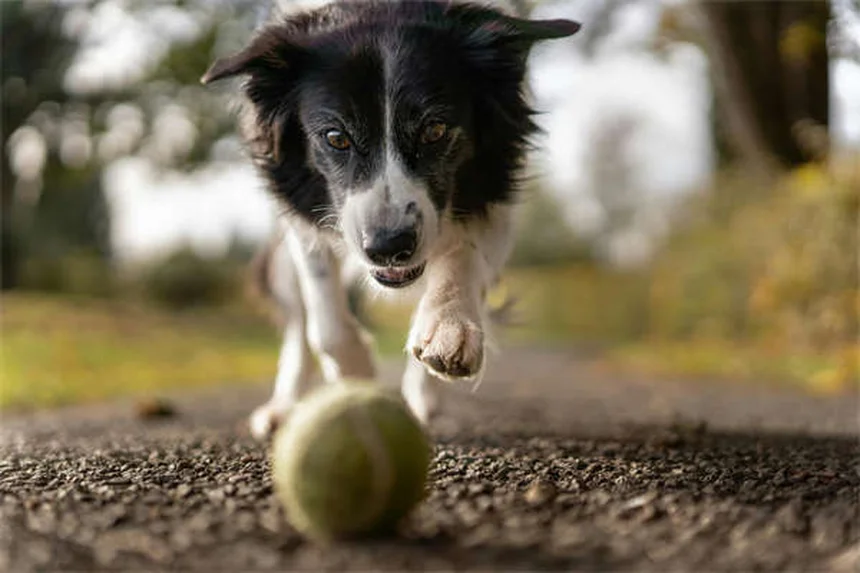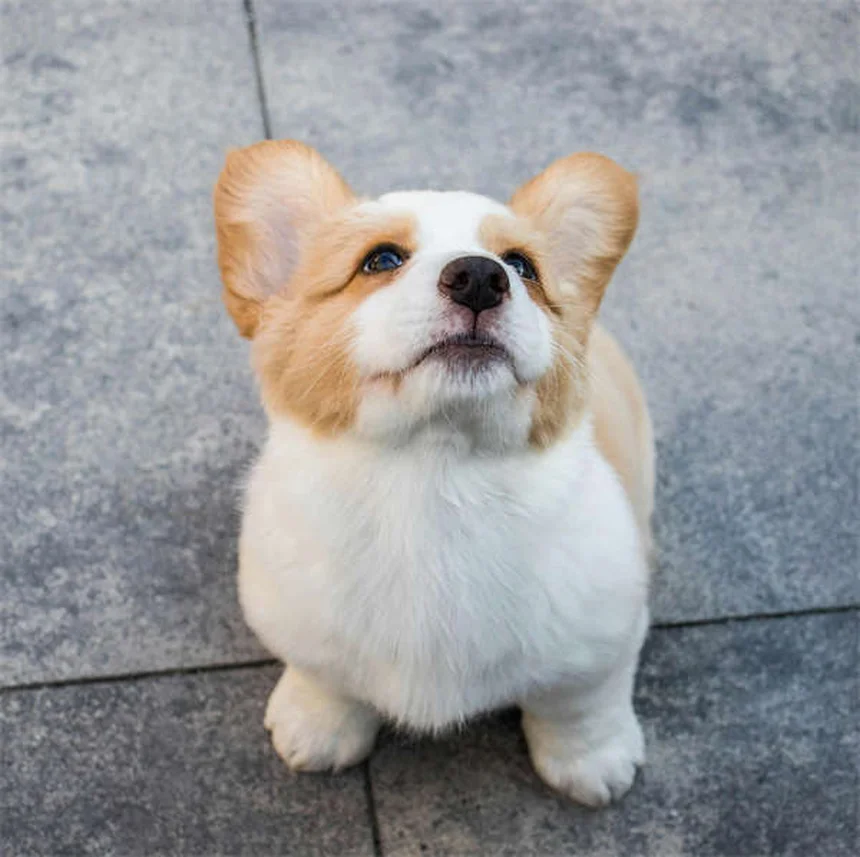Why Is My House-Trained Dog Pooping Inside? 7 Common Causes & Fixes
Why is my house-trained dog pooping inside? The answer is simple: your dog isn't doing this to upset you - there's always an underlying reason. Whether it's health issues, stress, or environmental changes, your pup is trying to tell you something's wrong. I've helped countless dog owners solve this messy problem, and the first step is understanding that punishment never works. Instead, we need to play detective to figure out what's really going on with your furry friend.From my experience as a dog behavior consultant, the most common causes fall into three categories: medical problems, anxiety triggers, and routine disruptions. Maybe your dog has developed a food allergy, gotten spooked by outdoor noises, or is struggling with your new work schedule. The good news? Once we identify the cause, we can usually fix the problem. Let's dive into the most effective solutions that have worked for my clients' dogs.
E.g. :Dog Years to Human Years: The Accurate Way to Calculate Your Pup's Age
- 1、Understanding Why Your Dog Poops Indoors
- 2、Stress and Anxiety: The Hidden Culprits
- 3、Practical Solutions for a Cleaner Home
- 4、When to Call the Vet
- 5、Preventing Future Accidents
- 6、Final Thoughts on a Messy Situation
- 7、The Emotional Impact on Dogs and Owners
- 8、Environmental Factors You Might Be Missing
- 9、Diet and Digestion: The Often Overlooked Connection
- 10、Training Techniques That Actually Work
- 11、Special Cases Worth Considering
- 12、Technology That Can Help
- 13、FAQs
Understanding Why Your Dog Poops Indoors
It's Not Just About Bad Behavior
Let's be honest - when your house-trained dog suddenly starts leaving "presents" on your favorite rug, it's frustrating. But before you get mad, remember this: dogs don't poop indoors to spite you. There's always a reason behind this messy behavior.
Think about it - would you suddenly start using your living room as a bathroom without a good reason? Probably not! Your dog feels the same way. When accidents happen regularly, it's their way of telling you something's wrong. Maybe they're sick, stressed, or confused about where they're supposed to go.
Common Health Issues That Cause Indoor Accidents
Your dog's digestive system is more sensitive than you might realize. Here are some health problems that could be causing those unwanted messes:
| Health Issue | Symptoms | What You Can Do |
|---|---|---|
| Intestinal Parasites | Diarrhea, mucus in stool, weight loss | Vet visit for deworming medication |
| Food Allergies | Itchy skin + loose stools | Try elimination diet with vet guidance |
| Arthritis (in older dogs) | Difficulty squatting, stiffness | Joint supplements, pain management |
Did you know that 10-15% of dogs with food allergies show both skin problems and digestive issues? That's why it's crucial to look at the whole picture when your pup starts having accidents.
Stress and Anxiety: The Hidden Culprits
 Photos provided by pixabay
Photos provided by pixabay
Separation Anxiety Can Lead to Messes
Remember when we all started working from home during the pandemic? Our dogs loved having us around 24/7. But now that many of us are returning to offices, our pups are struggling with the change.
Here's how separation anxiety might show up in your dog:- They follow you obsessively when you're getting ready to leave- You find destruction or accidents only when you're gone- They seem extra clingy when you return
Fear of the Great Outdoors
You might think your backyard is a peaceful paradise, but to your dog? It could be a scary place full of terrifying things:
Common outdoor stressors:- Loud trucks or motorcycles- Neighbor's barking dog- Kids playing loudly- Thunderstorms- That weird garden gnome you thought was cute
If your dog seems tense during walks or refuses to poop outside, they might be telling you they feel unsafe. I've seen dogs who would literally hold it all day just to avoid scary outdoor noises!
Practical Solutions for a Cleaner Home
Creating a Better Bathroom Routine
Here's a question you might not have considered: Are you giving your dog enough time to actually poop outside? Many dogs get so distracted by smells and squirrels that they forget why they're out there!
Try this instead:1. Take your dog out on leash to a specific "potty spot"2. Stand quietly and give them 5-10 minutes to focus3. If they go, celebrate like they just won the lottery (treats help!)4. If not, bring them inside and try again in 15 minutes
 Photos provided by pixabay
Photos provided by pixabay
Separation Anxiety Can Lead to Messes
Regular cleaners might remove stains, but your dog's nose is way more sensitive than yours. If they can still smell previous accidents, they're more likely to go in the same spot again.
Invest in a good enzymatic cleaner (like Nature's Miracle) that actually breaks down the smelly molecules. Pro tip: soak the area thoroughly and let it dry completely before allowing your dog access again.
When to Call the Vet
Red Flags You Shouldn't Ignore
While occasional accidents happen, these signs mean it's time for professional help:- Blood in stool- Significant changes in appetite- Weight loss- Lethargy- Straining to poop
Remember that time my neighbor's dog started having accidents? Turns out he had a treatable intestinal infection. A simple vet visit and medication solved the problem completely!
Special Considerations for Senior Dogs
 Photos provided by pixabay
Photos provided by pixabay
Separation Anxiety Can Lead to Messes
As dogs age, they can develop something similar to Alzheimer's in humans. You might notice:- Pacing at night- Getting "lost" in familiar spaces- Forgetting house training- Changes in sleep patterns
The good news? There are special diets, supplements, and even medications that can help. Your vet can recommend the best approach for your senior companion.
Making Life Easier for Arthritic Dogs
Imagine having hip pain every time you needed to squat - that's what some older dogs experience. Simple adjustments can make a big difference:- Install a doggy ramp if you have stairs- Keep a potty pad near their favorite resting spot- Consider shorter, more frequent walks- Ask your vet about joint supplements
Preventing Future Accidents
The Power of Positive Reinforcement
Yelling at your dog for accidents usually backfires. Instead, focus on rewarding good behavior. When they poop outside:- Give immediate praise- Offer a special treat- Do a happy dance (yes, really!)
Dogs live in the moment, so timing is everything. That's why it's better to catch them in the act of going outside than to scold them after an indoor accident.
Consistency is Key
Dogs thrive on routine. Try to:- Feed at the same times daily- Offer regular potty breaks- Keep walks on a schedule- Maintain consistent rules
Think of it like training a toddler - the more predictable their world is, the better they'll behave. And just like kids, dogs sometimes need reminders about the rules!
Final Thoughts on a Messy Situation
Patience Pays Off
House training setbacks can be frustrating, but with patience and the right approach, most dogs can get back on track. Remember:- Rule out medical issues first- Address environmental stressors- Be consistent with training- Clean accidents thoroughly
Every dog is different, so what works for your neighbor's pup might not work for yours. Don't be afraid to experiment with different solutions until you find what clicks for your furry friend.
When All Else Fails
If you've tried everything and your dog is still having accidents, don't despair. Professional dog trainers and veterinary behaviorists have additional tools and techniques that can help. Sometimes it just takes finding the right expert to solve the puzzle!
The Emotional Impact on Dogs and Owners
How Your Dog Feels About Accidents
You know that guilty look your dog gives you after an accident? It's not actually guilt - it's them reacting to your frustration! Dogs don't have the same complex emotions we do, but they definitely pick up on our energy.
When accidents happen repeatedly, your pup might start feeling anxious about the whole potty situation. I've seen dogs who develop this cycle: they have an accident → you get upset → they get stressed → which makes them more likely to have another accident. Breaking this pattern requires patience and understanding from both of you.
The Owner's Frustration is Real Too
Let's be honest - cleaning up dog poop from your favorite rug at 6 AM before work is nobody's idea of a good time. The frustration, embarrassment, and even resentment you might feel are completely valid emotions.
But here's something interesting: did you know that owners who approach the problem with humor and patience actually solve it faster? Instead of seeing it as a personal failure, try viewing it as a puzzle to solve together with your furry friend. After all, you're on the same team!
Environmental Factors You Might Be Missing
Weather Woes
Have you ever noticed your dog refusing to go out in the rain? Many dogs develop strong preferences about weather conditions. Some common weather-related issues include:
| Weather Condition | Dog Reaction | Solution |
|---|---|---|
| Rain | Refuses to go out, shakes paws | Try a covered patio area or doggy raincoat |
| Snow | Lifts paws uncomfortably | Use pet-safe ice melt and booties |
| Extreme heat | Seeks shade immediately | Go out during cooler morning/evening hours |
I'll never forget the time my friend's golden retriever refused to poop for two days during a snowstorm - turns out he just hated the cold on his paws! A simple pair of booties solved the problem instantly.
Territory Marking vs. Accidents
Here's a question many owners don't think to ask: Is this really an accident, or is my dog marking territory? There's actually a big difference!
Territory marking usually involves small amounts of urine in specific spots (like near doors or windows), while true accidents are full eliminations. Male dogs are more prone to marking, but females do it too. If it's marking behavior, you might need to approach the solution differently - like using belly bands or addressing the underlying territorial anxiety.
Diet and Digestion: The Often Overlooked Connection
How Food Affects Poop Schedule
You are what you eat - and that goes for your dog too! The type and timing of meals can significantly impact your dog's bathroom habits. Here's what most owners don't realize:
High-fiber diets create more bulk and more frequent poops, while high-protein diets often result in smaller, firmer stools. If you've recently changed foods, that could explain new accidents. And get this - some dogs actually need to poop twice as often on new food until their system adjusts!
The Treat Factor
We all love spoiling our pups, but have you considered how those extra treats might be affecting their digestion? Too many rich treats can cause:
- Loose stools- More frequent urges to go- Even diarrhea in sensitive dogs
Try keeping a "treat diary" for a week - you might be surprised how much those little extras add up! I once worked with a Labrador who was getting 20+ treats daily (hidden in training sessions) - no wonder he was having accidents!
Training Techniques That Actually Work
The Power of Cue Words
Did you know you can actually teach your dog a "go potty" command? It's one of the most useful tricks for preventing accidents! Here's how it works:
1. Every time your dog starts to poop outside, say your chosen cue ("go potty" or "do your business")2. When they finish, reward immediately3. Repeat consistently for 2-3 weeks
Soon, you'll be able to use the command to prompt them when you're in a hurry or in new environments. It's like having a magic poop button for your dog!
Crate Training as a Solution
Now, I know what you're thinking: "Isn't crating cruel?" Actually, when done properly, most dogs see their crate as a safe den. The key is making it positive with treats and comfort items.
Dogs naturally avoid soiling their sleeping area, so appropriate crate use can help reset their potty habits. Just remember - no dog should stay crated more than 4-5 hours max during the day, and puppies need more frequent breaks!
Special Cases Worth Considering
Rescue Dogs and Their Unique Challenges
If you've adopted a rescue, their history might explain potty problems. Dogs from puppy mills or hoarding situations often:
- Never learned proper elimination habits- May have been forced to soil their living space- Could associate certain surfaces (like concrete) with "approved" potty areas
These dogs often need extra patience and sometimes creative solutions. I worked with one rescue who would only poop on gravel - turns out that's all he knew from his previous life in an outdoor kennel!
The Puppy vs. Adult Dog Difference
Puppies have tiny bladders and immature digestive systems - that's common knowledge. But here's what most people don't realize: adult dogs can regress to puppy-like habits during major life changes!
Moving to a new home? Adding a baby to the family? These stressful events can temporarily undo even the best house training. The good news? They usually bounce back faster than true puppies once the routine stabilizes.
Technology That Can Help
Potty Training Apps
In our digital age, there's an app for everything - including tracking your dog's potty habits! These tools help you:
- Log accidents and successes- Identify patterns in timing- Set reminders for potty breaks- Track food and water intake
After using one for just a week, you might notice trends you'd never spot otherwise. One client discovered her dog always had accidents exactly 47 minutes after breakfast - problem solved with a well-timed walk!
Smart Potty Solutions
From indoor grass patches to high-tech self-cleaning boxes, today's market offers solutions we couldn't imagine 10 years ago. While not right for every dog, these can be game-changers for:
- Apartment dwellers- Elderly or disabled owners- Dogs with medical conditions- Extreme weather areas
The key is introducing any new system gradually with positive reinforcement. Your dog might surprise you with how quickly they adapt to new bathroom options!
E.g. :Solving Your Puppy Potty Training Problems - Peach on a Leash
FAQs
Q: Can intestinal parasites cause my dog to poop in the house?
A: Absolutely! Intestinal worms are one of the most common medical reasons for house-trained dogs having accidents. Here's what happens: these nasty parasites irritate your dog's digestive system, causing urgent diarrhea or mucus in their stool. I've seen cases where dogs literally can't make it outside in time because the urge hits so suddenly. The solution? A simple vet visit for fecal testing and deworming medication. Prevention is key too - ask your vet about monthly parasite control, especially if your dog visits parks or interacts with other animals. Remember, if you're seeing weight loss along with the accidents, that's a red flag for parasites.
Q: How does separation anxiety lead to indoor pooping?
A: Separation anxiety creates real physical distress for dogs when left alone. As a behavior specialist, I've observed that anxious dogs often hold their poop while owners are home, then have accidents shortly after departure. Their bodies literally react to stress by needing to eliminate. The solution isn't punishment - it's gradual desensitization training. Start with very short absences (even just 30 seconds) and slowly build up duration. Products like Thunderease pheromones or calming supplements can help during this process. Pro tip: that guilty look when you come home? It's not guilt - it's your dog's stress response to your angry body language.
Q: Why would my older dog suddenly start pooping inside?
A: Senior dogs face two main challenges that can cause regression in house training. First, canine cognitive dysfunction (doggy dementia) makes them forget their training. I've worked with dogs who would pace circles then poop in corners because they forgot where the door was. Second, arthritis pain makes squatting difficult - imagine how hard it would be to use the bathroom if your hips hurt! Solutions include: more frequent potty breaks, orthopedic beds near exits, and vet-prescribed joint supplements. For severe cases, doggy diapers or indoor grass pads can be temporary solutions while you address the root causes.
Q: Can changing my dog's food cause indoor accidents?
A: Yes, and this is one of the most overlooked causes I see in my practice. Dogs' digestive systems are sensitive - even switching between flavors of the same brand can upset their stomachs. The key is transitioning gradually over 7-10 days, mixing increasing amounts of new food with the old. I recommend starting with 25% new food, then 50%, then 75%. Adding probiotics during the transition can really help too. Watch for these signs of food intolerance: excessive gas, stomach gurgling, or softer-than-normal stools. If symptoms persist beyond the transition period, consult your vet about possible food allergies.
Q: How can I stop my distracted dog from pooping inside?
A: This is such a common issue! Many dogs get so excited by outdoor smells and sounds that they forget to "go." Here's the training method I've used successfully with hundreds of dogs: create a specific "potty spot" in your yard and always take your dog there on leash. Use a command like "go potty" and stand still - no walking or playing until business is done. When they go, immediately reward with high-value treats and enthusiastic praise. Keep sessions short (5-10 minutes max) to maintain focus. If no results, bring them inside and try again in 15 minutes. Consistency is crucial - within a week most dogs learn that potty time comes before play time!







